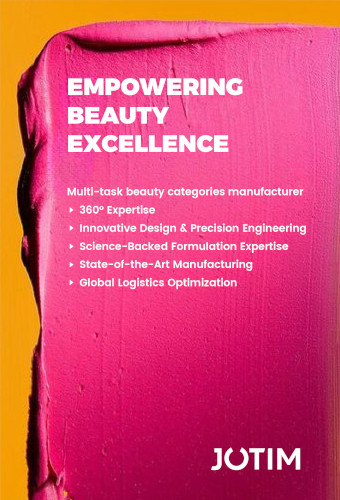Intended for cosmetics and personal care applications, the new tube is composed of Stora Enso’s barrier-coated board material Natura Shape and a screw cap designed in collaboration with Blue Ocean Closures with assembly by AISA. Stora Enso says the packaging solution has fiber content of over 85%, which it claims is the highest proportion available in a tube design. Officially unveiled at Interpack 2023, which was held in Düsseldorf, Germany, from May 04-10, the new it is expected to be commercially available in 2024.
A cap made of more than 95% wood-fiber
Stora Enso first launched its paperboard tube concept for cosmetics packaging in 2019 at Luxe Pack Monaco. By adding the tube with a fiber-based cap developed by the Swedish start-up Blue Ocean Closures, the Finnish-Swedish group has achieved an unprecedented reduction in the amount of plastic remaining in the packaging.
The innovative cap is made of more than 95% fibers from wood cellulose. It is strong and has a high density and can be decorated. It screws onto an overmolded hybrid shoulder, made from cardboard and PE (40-70% fiber content).
The assembly of the whole solution was provided by AISA, a world-leading tube machinery manufacturer.
"We know that brand owners face challenges when trying to find sustainable alternatives to plastic tubes and believe it is essential to increase fiber content to reach a higher degree of recyclability, reduce carbon footprint, and meet consumer expectations," said Lars Sandberg, CEO at Blue Ocean Closures.
The recyclability challenge
By utilizing wood fiber, this concept aims to reduce the amount of plastic used in tubes, thus helping brand owners increase the share of renewable and sustainable material in their packaging solutions.
“We believe that it is essential to increase fiber content in order to futureproof paperboard tubes with increased recyclability and reduced carbon footprint,” highlighted Martin Hammer, Business Developer at Stora Enso.
The Swedish-Finnish paper mill group claims that all components of the paperboard tube are designed for recycling. However, the recycling of composite materials remains a practical challenge. Methods such as pyrolysis and solvolysis can be used to remove resins from composite packaging and enable the reuse of the fibers, however this type of recycling infrastructure is not widely available to date. Nevertheless, this innovation is a significant step forward since it helps to reduce plastic consumption for a packaging that remains difficult to recycle anyway.








































